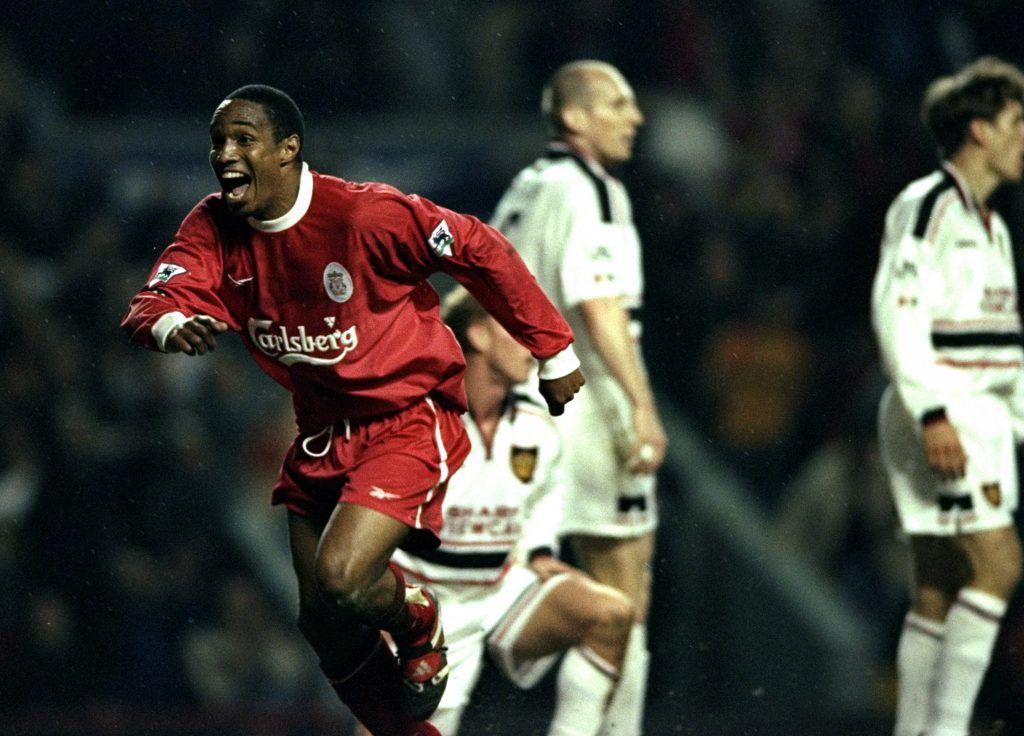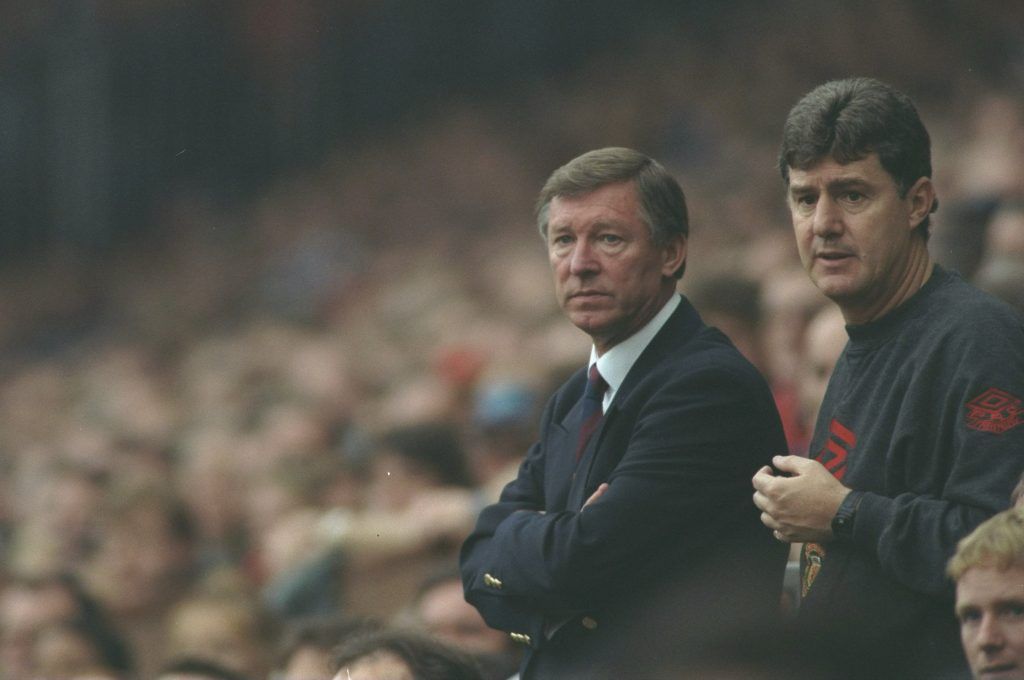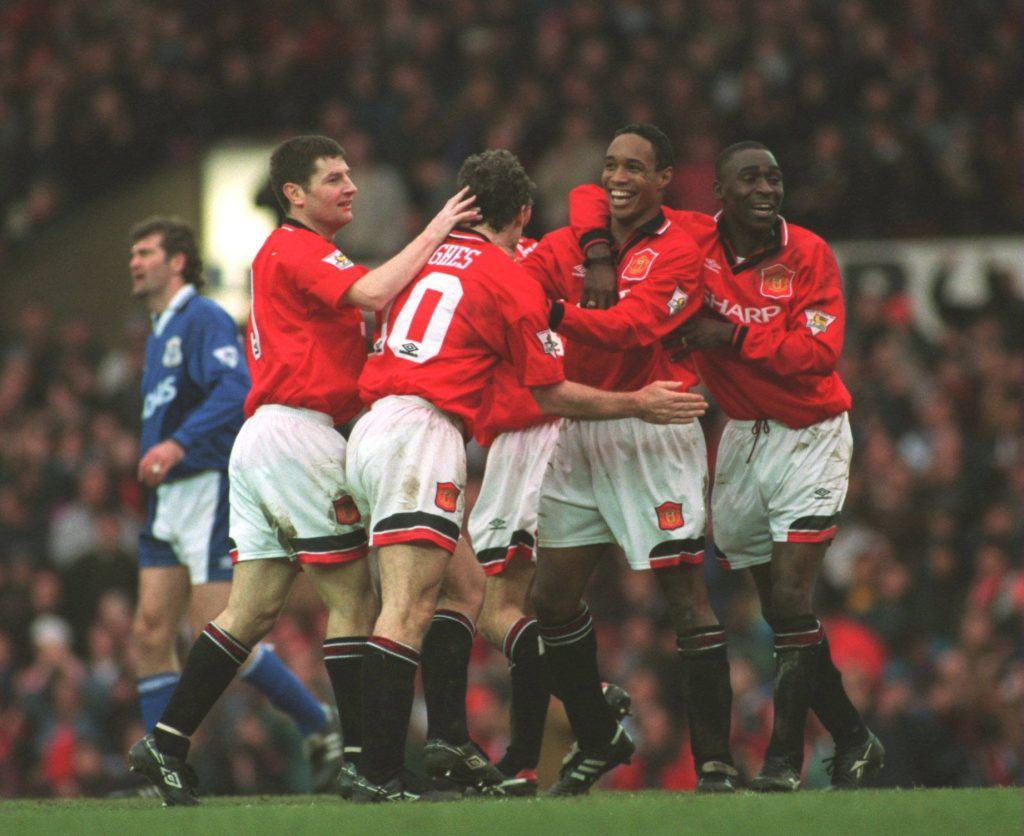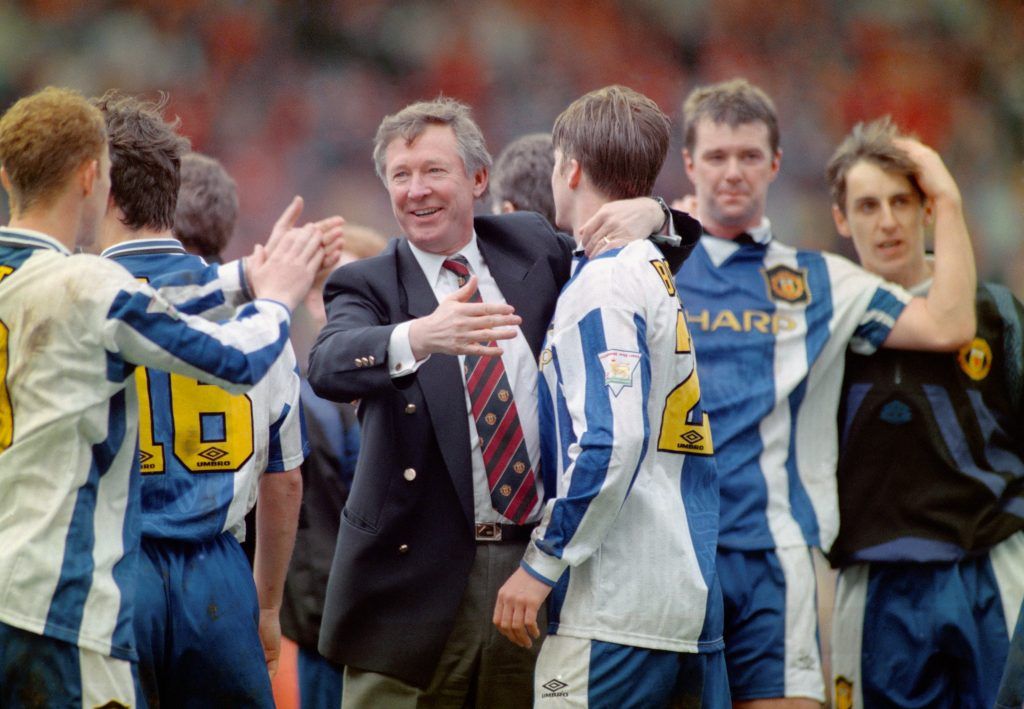“They accepted a bid behind my back, I wasn’t too pleased.”
Paul Ince has been speaking about his exit from Manchester United in 1995 and his experience of playing in Italy.
Ince was a fan favourite across six seasons at Old Trafford. He played almost 300 times for the club and helped them end a 26-year wait for a league title in 1993.
In his time at United, Ince won two Premier League titles, two FA Cups and the Cup Winner’s Cup.
He joined Inter Milan for £6m in 1995. After two years in Serie A, Ince returned to the Premier League and signed for Liverpool.
In May 1999, he scored a late equaliser for the Reds against his old team at Anfield, a goal that could have derailed United’s challenge for the treble.
He celebrated it like a man who had a point to prove.
Ince was a key part of Alex Ferguson’s first great side. However, he appeared to get on the wrong side of the Scot.
According to the former West Ham midfielder, he was forced out of the club and had no choice but to sign for Inter. “I never wanted to leave Man United,” Ince said on Premier League Tonight on BT Sport.
Chris Sutton asked Ince why he chose Inter Milan.
“I didn’t choose,” the former England midfielder said.
“Man United accepted the bid for me from Inter Milan. I could have turned it down but it was a case of… I didn’t feel right. After six years with Manchester United, they had accepted a bid behind my back, I wasn’t too pleased about that.”
Ince said that he and his family initially struggled to settle in Italy, but his experience was great and the “best thing” he ever did.
You can watch Ince here:
"I never wanted to leave Man Utd."
"They accepted a bid behind my back, I wasn't too pleased."@PaulInce reflects on the circumstances surrounding his departure from Old Trafford 🏴➡️🇮🇹
Safe to say things worked out well 💪#PLTonight pic.twitter.com/QbNtFWSv70
— Football on TNT Sports (@footballontnt) October 20, 2018
His version of events is contradicted by Ferguson.
In his first autobiography, the former United manager conceded that he did want to sell Ince, but he didn’t force the player out. And he got the sense that there had already been some contact nade between Ince and Inter Milan.
“I had to act on my conviction that the fundamental change in Paul’s attitude, his insistence on trying to assume a role in the team for which he was not equipped, had diminished his usefulness to us to the point where a transfer made absolute sense,” Ferguson said.
“As the negotiations between Inter Milan and United gathered pace, the president of the Italian club, Massimo Moratti, arrived at Old Trafford with his entourage. They agreed to pay a fee of £6 million and guaranteed further profit for United through the playing of four matches between the two clubs over two years. The next stage was to bring Ince to the table and it was left to me to get in touch with him at Mottram Hall, where he was having a game of golf.
“I don’t think he was surprised to see me waiting for him when he came off the course. I explained the latest position and told him that Moratti was in the chairman’s office and waiting for a call. When I got through to Martin Edwards he said the Italians wanted to speak to Paul, so I handed the phone over to him. I was struck by what seemed to me to be a tone of familiarity in the ensuing conversation. Paul had been giving the impression to our supporters that United were forcing him out. Such a version of events was nonsense.
“Yes, I wanted rid of him but if he had been determined to stay it would not have been possible to push the transfer through. There is no way you could force Paul Ince to do anything against his will. I believe that he and his agent had been in contact with people in Italian football over a period of months. I was told that at our reception after defeat by Everton in the 1995 Cup final, Paul was heard declaring that he was on his way to Italy. Yet, in spite of all that, I was being branded as Public Enemy Number One for driving him away.”
Ferguson also said that he felt Ince had become too arrogant and lacked the tactical discipline to play in central midfield.
“I was already bothered by his attitude around the dressing room,” the former United manager said.
“He had attached a rather silly title to himself. ‘Don’t call me Incey, call me the Guvnor,’ he was saying, and that did not go down well. There had been a cockiness about him from the moment he came to Old Trafford but I reckoned it was his way of masking insecurity. Deep down he worries and I was happy to give him some licence while he was young and immature. In our youth we all drift in and out of a make-believe world.
“Paul Ince had reached an age of maturity and this guvnor nonsense should have been left in his toy-box. On the field he had already worried me with an altered approach to his game. He was spending more and more time going forward but not coming back quickly enough and it was quite apparent that he was completely carried away.”
After selling Ince, Mark Hughes and Andrei Kanchelskis in 1995, Ferguson promoted members of the Class of 92 – David Beckham, Gary & Phil Neville, Nicky Butt and Paul Scholes – to the first team.
With the help of experienced players like Roy Keane, Eric Cantona, Ryan Giggs, Peter Schmeichel and Denis Irwin, United’s young players won the double and helped vindicate Ferguson’s decision to discard Ince.
But, long after he had left, Ferguson still seemed to be wary of Ince.
In this clip, the former United boss warns his players about Ince with his “big-time Charlie bit” and demands that they do not to allow him to bully them.
























































